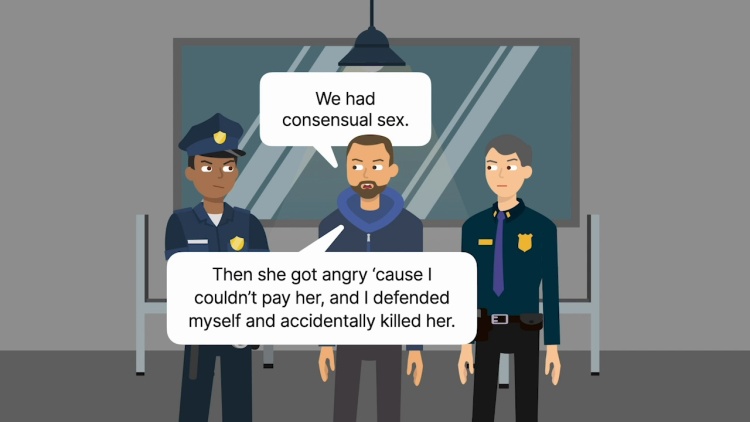People v. Portillo
California Court of Appeal
132 Cal. Rptr. 2d 435, 107 Cal. App. 4th 834 (2003)
- Written by Caroline Milne, JD
Facts
Coby Portillo (defendant) raped, sodomized, and then murdered a professional female escort by hitting the escort with a hammer. Portillo’s wife discovered the body in the couple’s apartment. At trial, Portillo claimed that the sex between the escort and Portillo was consensual and that Portillo killed the escort in self-defense. The trial court planned to instruct the jury on felony murder as an alternate theory for first-degree murder. Portillo objected, arguing that felony murder did not apply, because the underlying rape and sodomy offenses were complete at the time Portillo killed the escort. Overruling Portillo’s objection, the court instructed the jury that, in order to find Portillo guilty of felony murder, the jury must find beyond a reasonable doubt that Portillo committed the murder in the course of rape or sodomy. The court further instructed the jury that the underlying crimes of rape and sodomy were not complete until Portillo had reached a place of temporary safety (i.e., that a felony remained in progress even when a defendant was fleeing from the crime). The jury convicted Portillo of first-degree murder, forcible rape, and forcible sodomy. Portillo appealed, arguing that the trial court erred when it issued the felony-murder instruction to the jury.
Rule of Law
Issue
Holding and Reasoning (Huffman, J.)
What to do next…
Here's why 911,000 law students have relied on our case briefs:
- Written by law professors and practitioners, not other law students. 47,100 briefs, keyed to 997 casebooks. Top-notch customer support.
- The right amount of information, includes the facts, issues, rule of law, holding and reasoning, and any concurrences and dissents.
- Access in your classes, works on your mobile and tablet. Massive library of related video lessons and high quality multiple-choice questions.
- Easy to use, uniform format for every case brief. Written in plain English, not in legalese. Our briefs summarize and simplify; they don’t just repeat the court’s language.





